This article was published in partnership with Local Call.
Shuafat Refugee Camp, in occupied East Jerusalem, has been under a near-complete lockdown since Saturday night, after a Palestinian man, Udai Tamimi, opened fire on a checkpoint at the camp and killed an Israeli soldier.
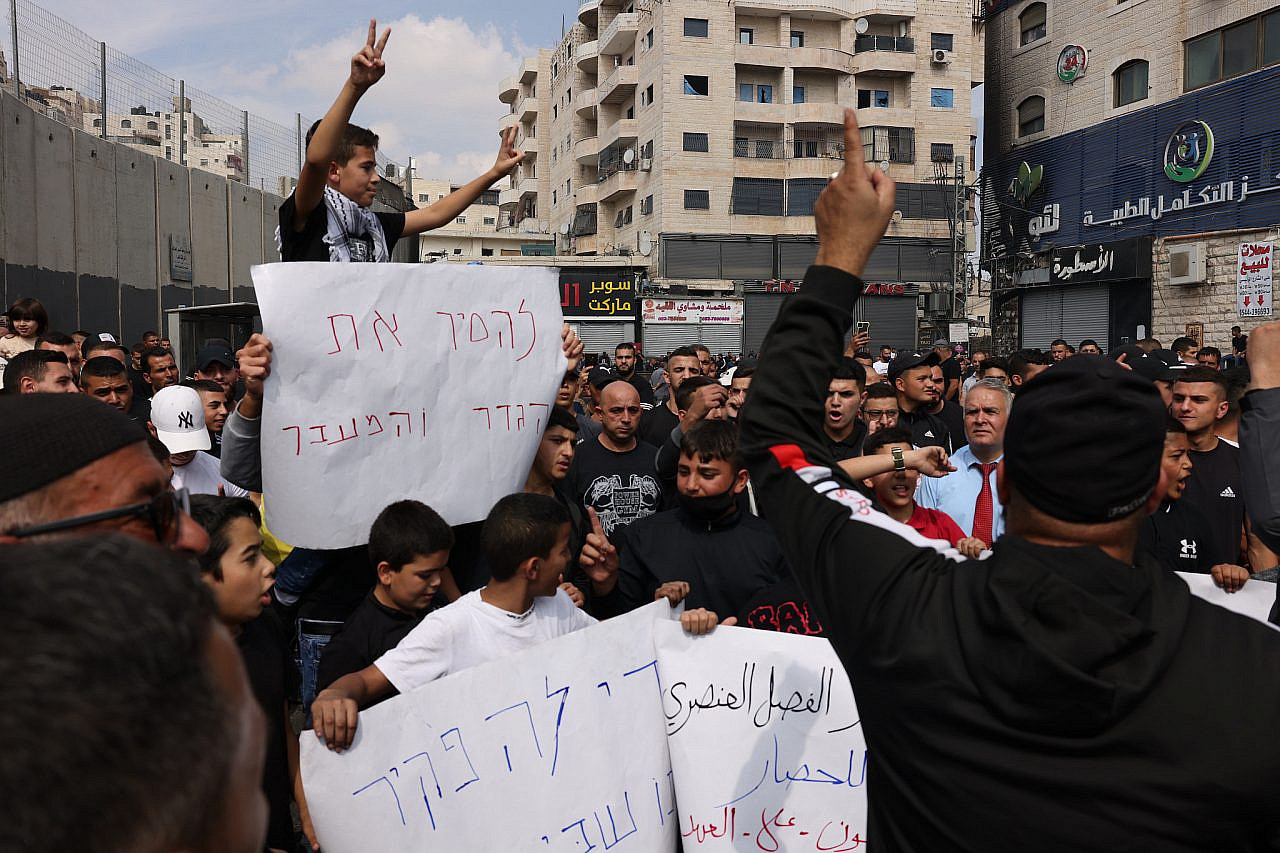
The refugee camp is home to around 100,000 Palestinians residents of Jerusalem who have, since the completion of the separation wall in the area in 2006, been cut off from the rest of the city and connected to the West Bank. Even though the camp’s residents pay taxes to the city, they receive next to no municipal services, and the area has become lawless territory in which the Palestinian Authority is forbidden from operating and which Israel does not enter except for police and military raids.
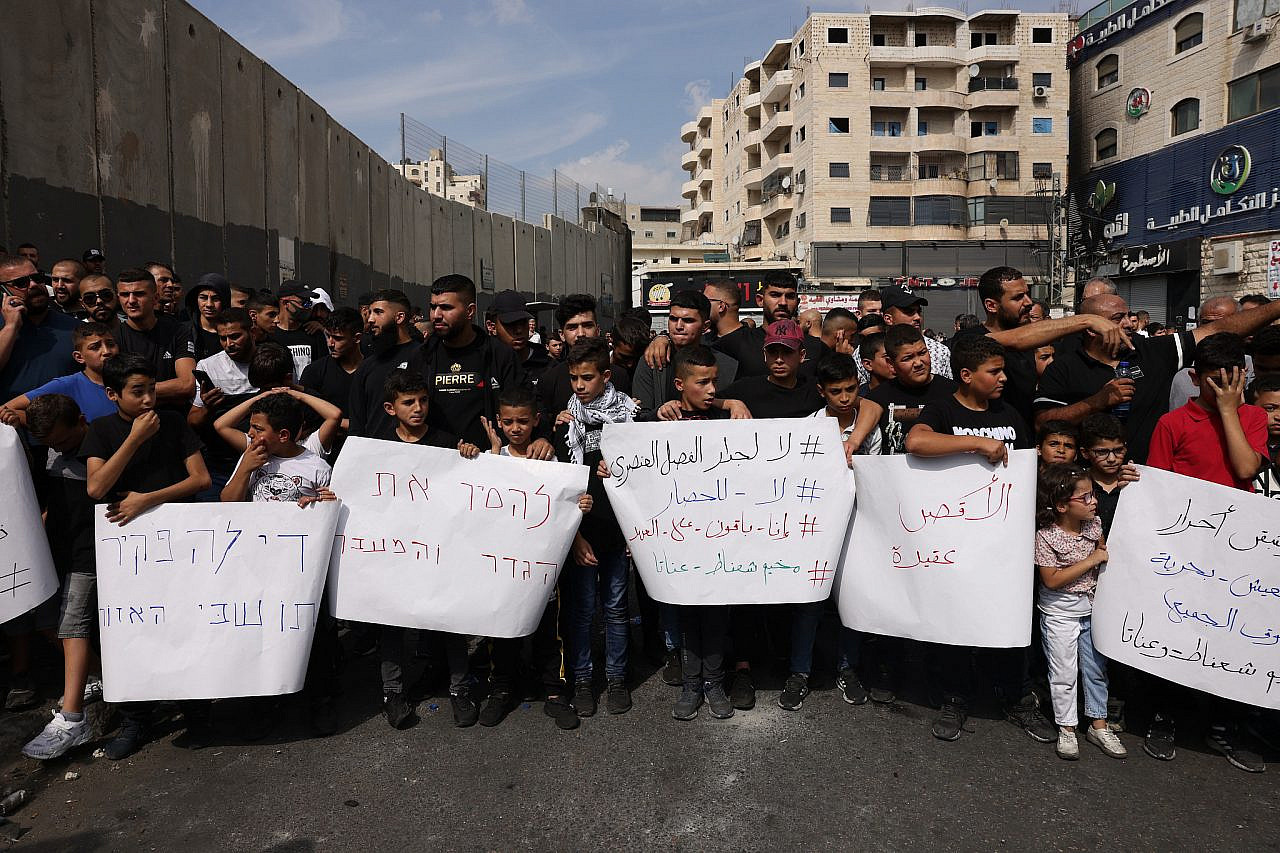
Saturday’s shooting, and the Israeli reprisals, come amid a months-long period of heightened unrest in the occupied West Bank, in which repeated Israeli military raids — staged under the guise of anti-terrorism operations — have killed dozens of Palestinians, including a series of lethal shootings of Palestinian minors over the past week. Several Israeli soldiers have been killed in Palestinian attacks during the same period.
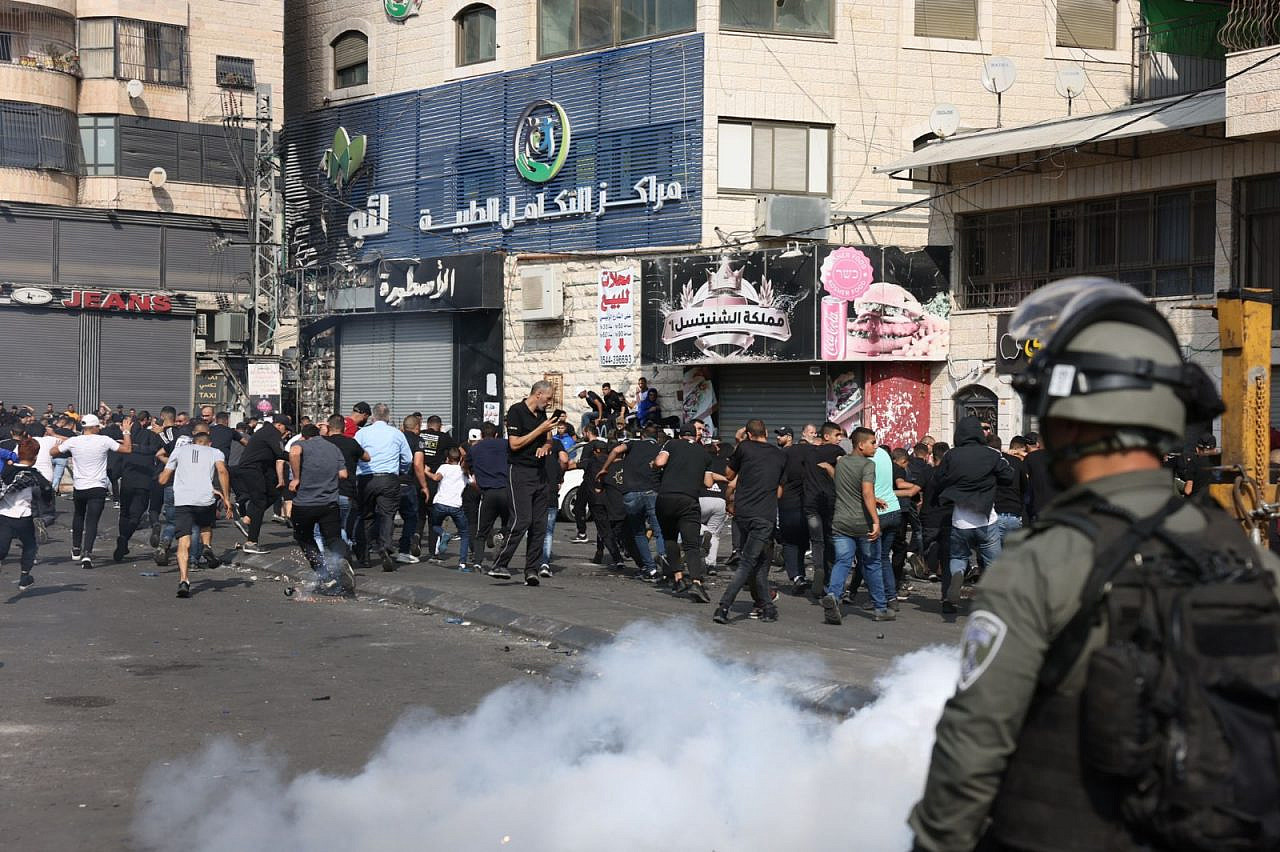
Since Israel imposed the lockdown, residents have only been able to leave the camp on certain days by car or on foot, and doing so has involved lengthy stops at the checkpoint leading to the rest of Jerusalem, where the shooting took place, creating hours-long queues and traffic jams. Even at the camp’s other checkpoint, leading into the West Bank, the army has set up additional barriers.
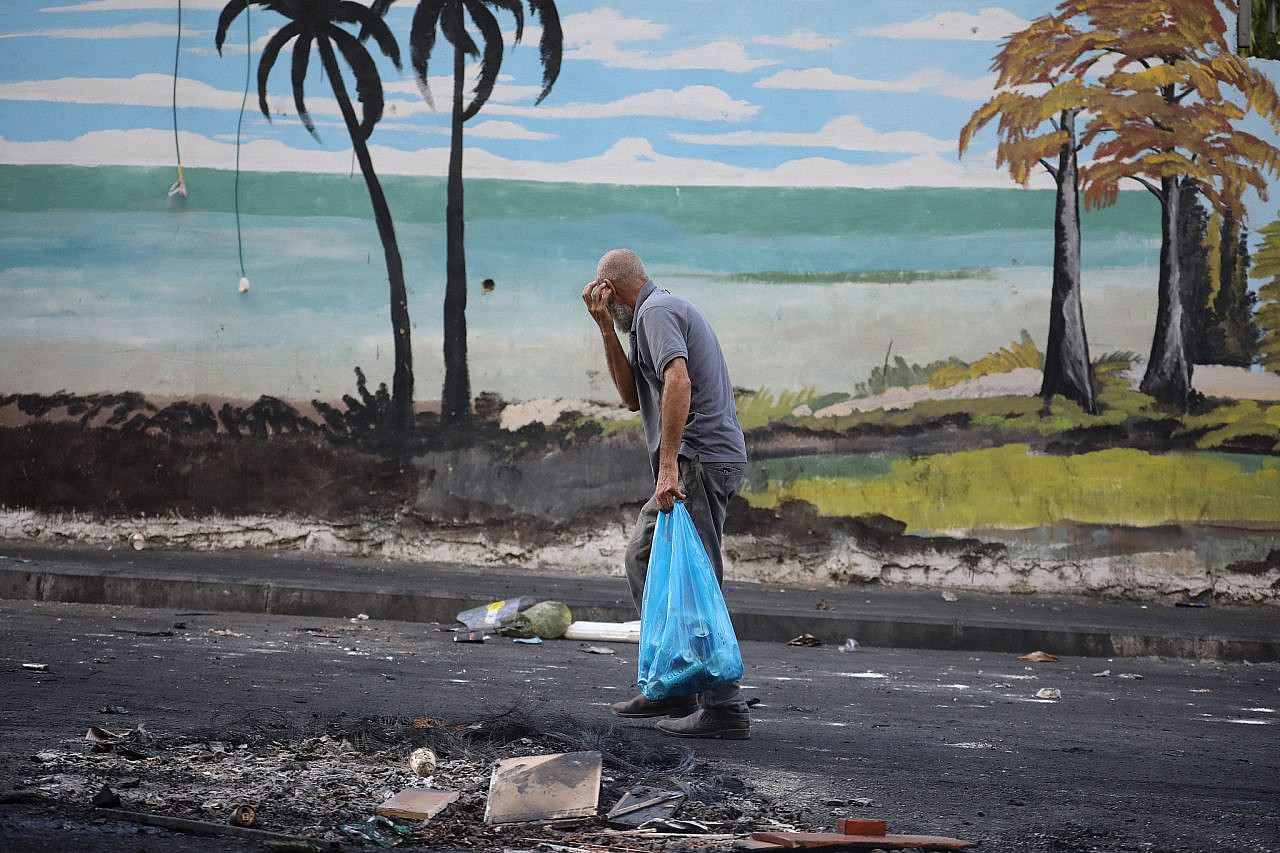
Shuafat Refugee Camp’s residents, most of whom work or study in Jerusalem, report shortages of food and medicines, while those who are chronically ill are unable to arrive on time for medical appointments in Jerusalem.
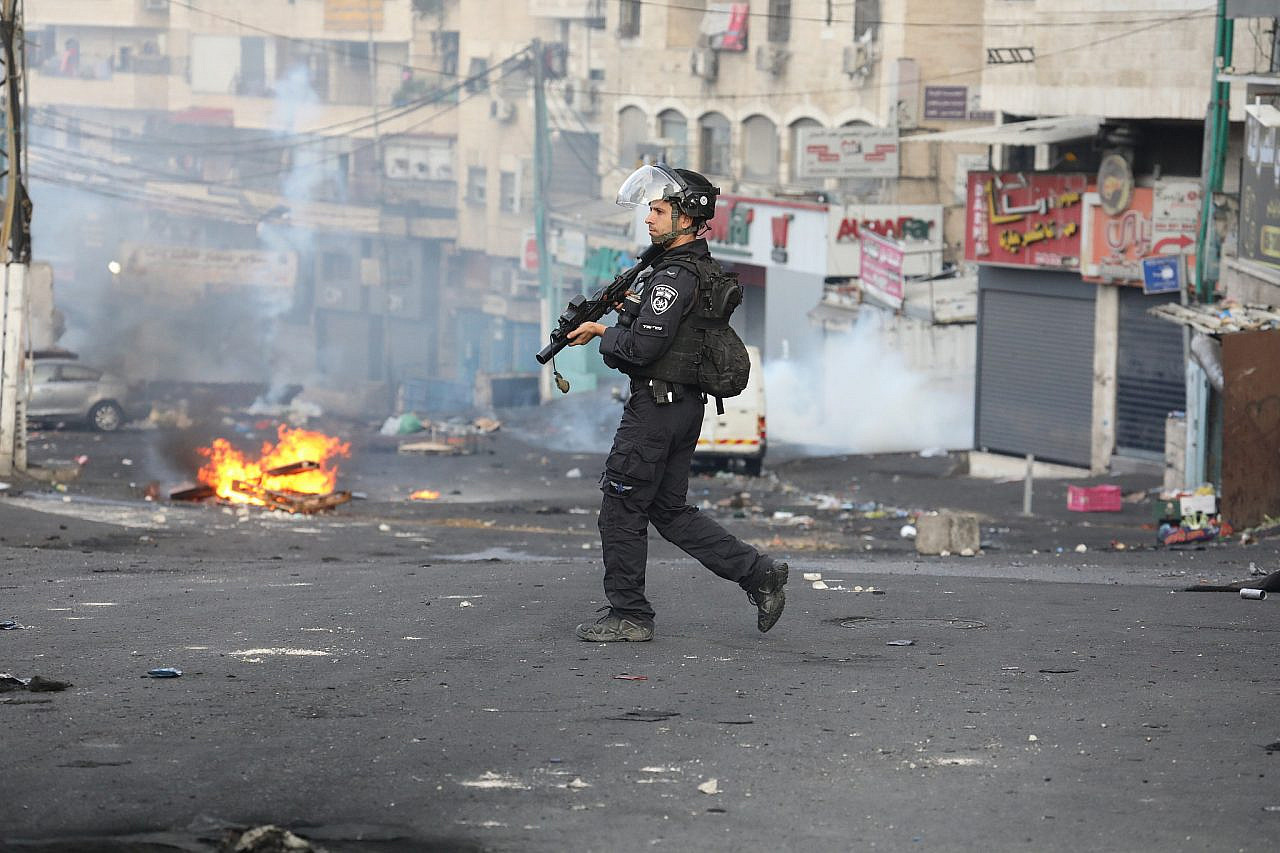
The closure and the widespread manhunt for the shooter, whom the authorities claim is hiding out in Shuafat Refugee Camp, have provoked confrontations between young Palestinians and Israeli security forces, who have been entering the camp at all hours of the day and night.
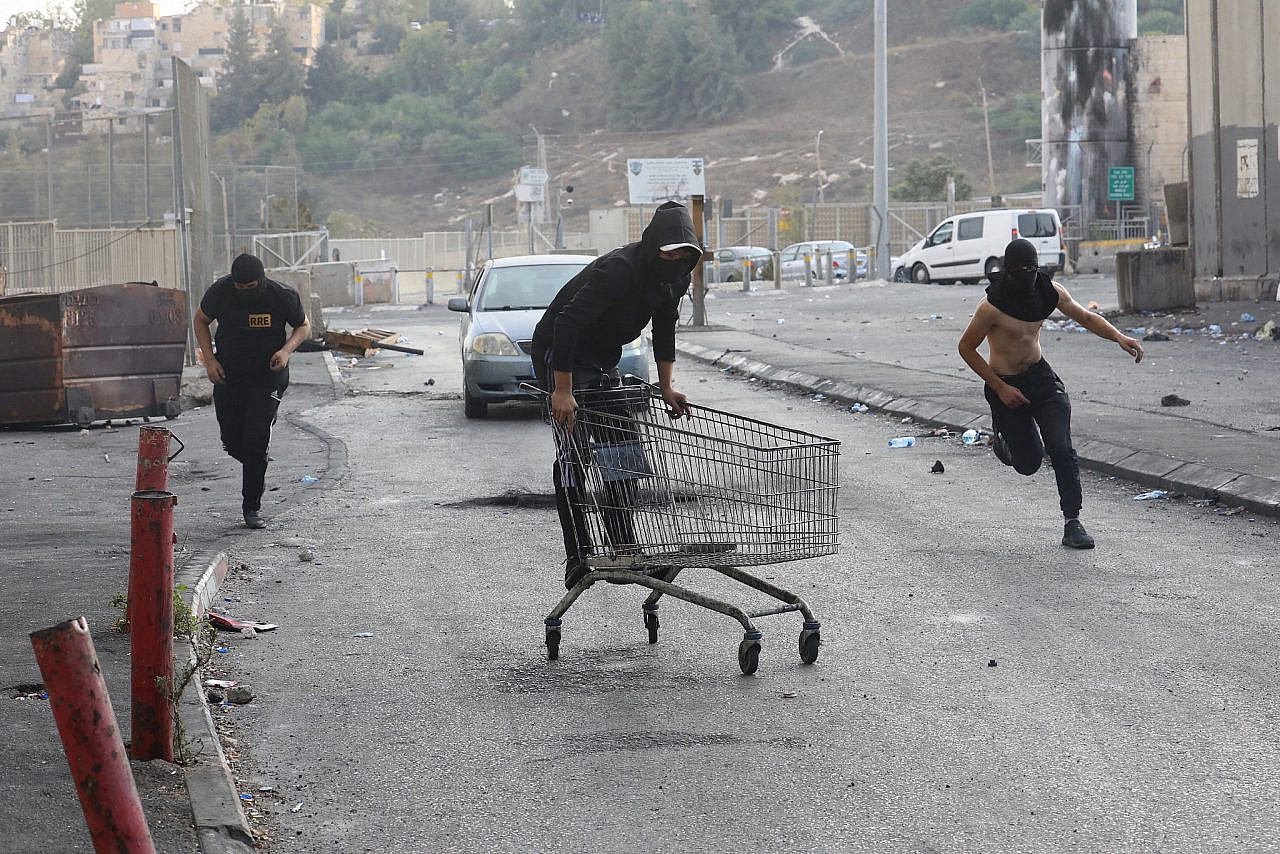
On Tuesday, the camp leadership announced plans for a general strike, in which none of the tens of thousands of Shuafat Refugee Camp’s residents who work in Jerusalem or throughout Israel would go to work, while schools and stores would be shut down entirely.
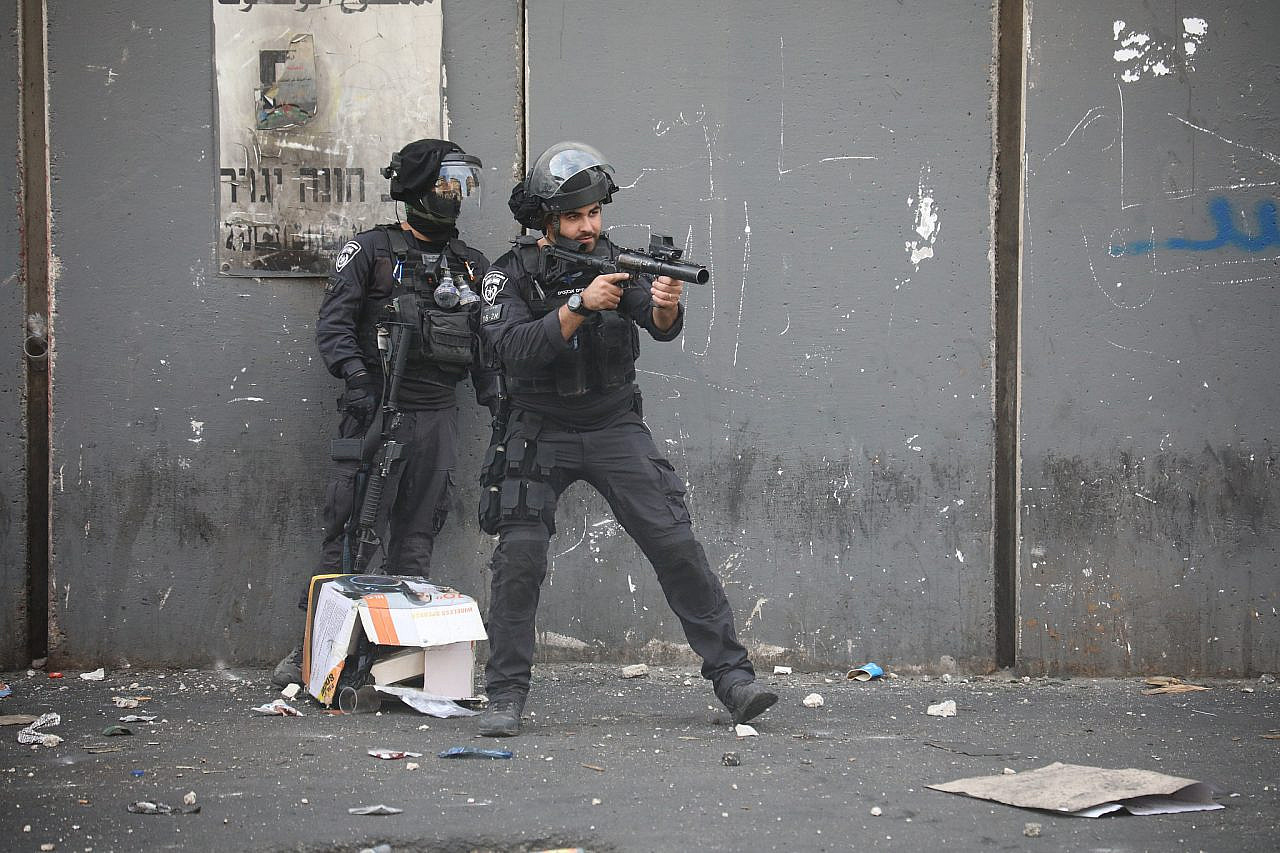
On Wednesday morning, hundreds of residents — many of them young people and students — held a quiet protest at the entrance to the checkpoint. A large police force was assembled across from them. As afternoon prayers approached, and protesters prepared to pray in the street, the police insisted that traffic should be allowed to pass — perhaps to avoid criticism that the authorities were closing the checkpoint.
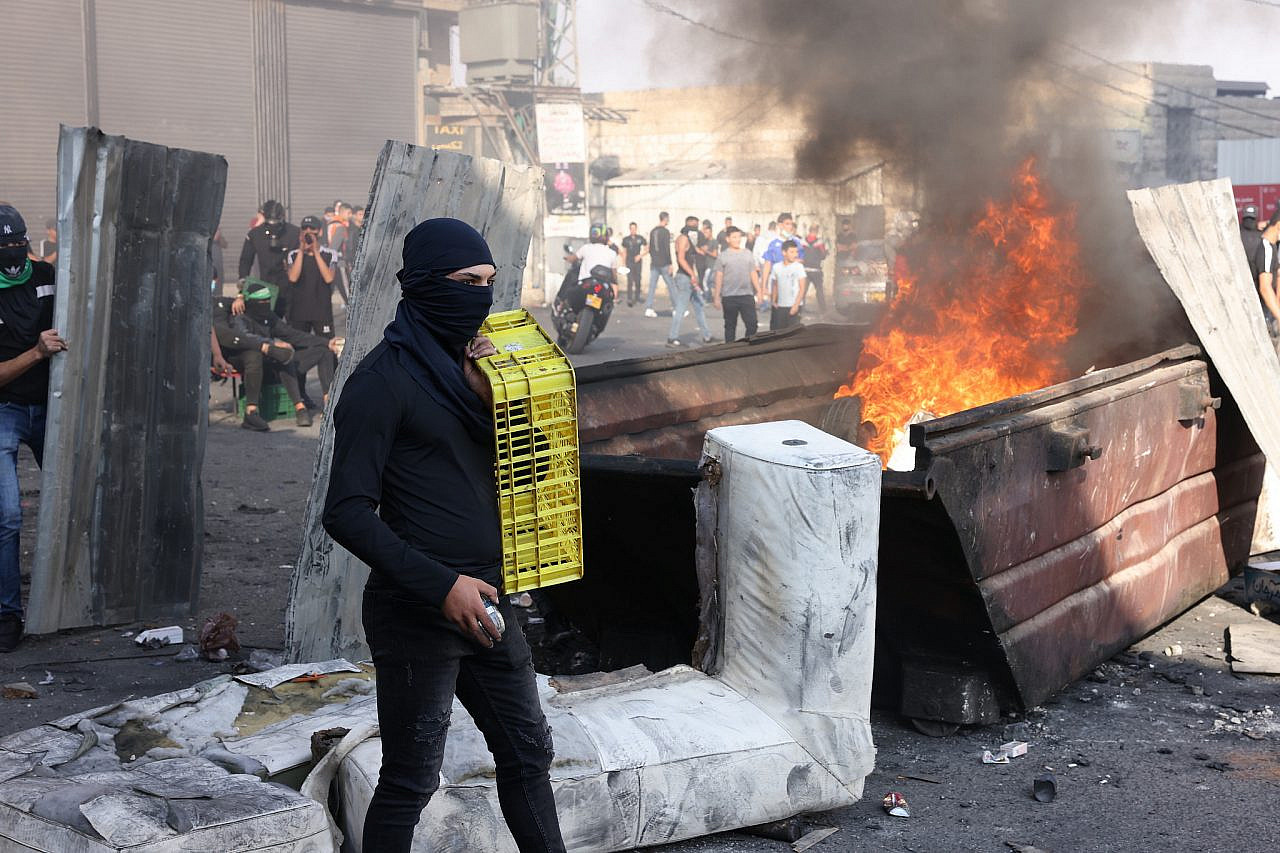
Although there was no stone-throwing, the police began firing shock grenades and sponge-tipped rounds; demonstrators responded to the suppression of the protest by throwing stones and burning trash cans. In the afternoon, even as the security forces claimed the checkpoint was open, only Palestinians who were registered as residents of the camp were able to enter from Jerusalem, while the exit was intermittently closed off.
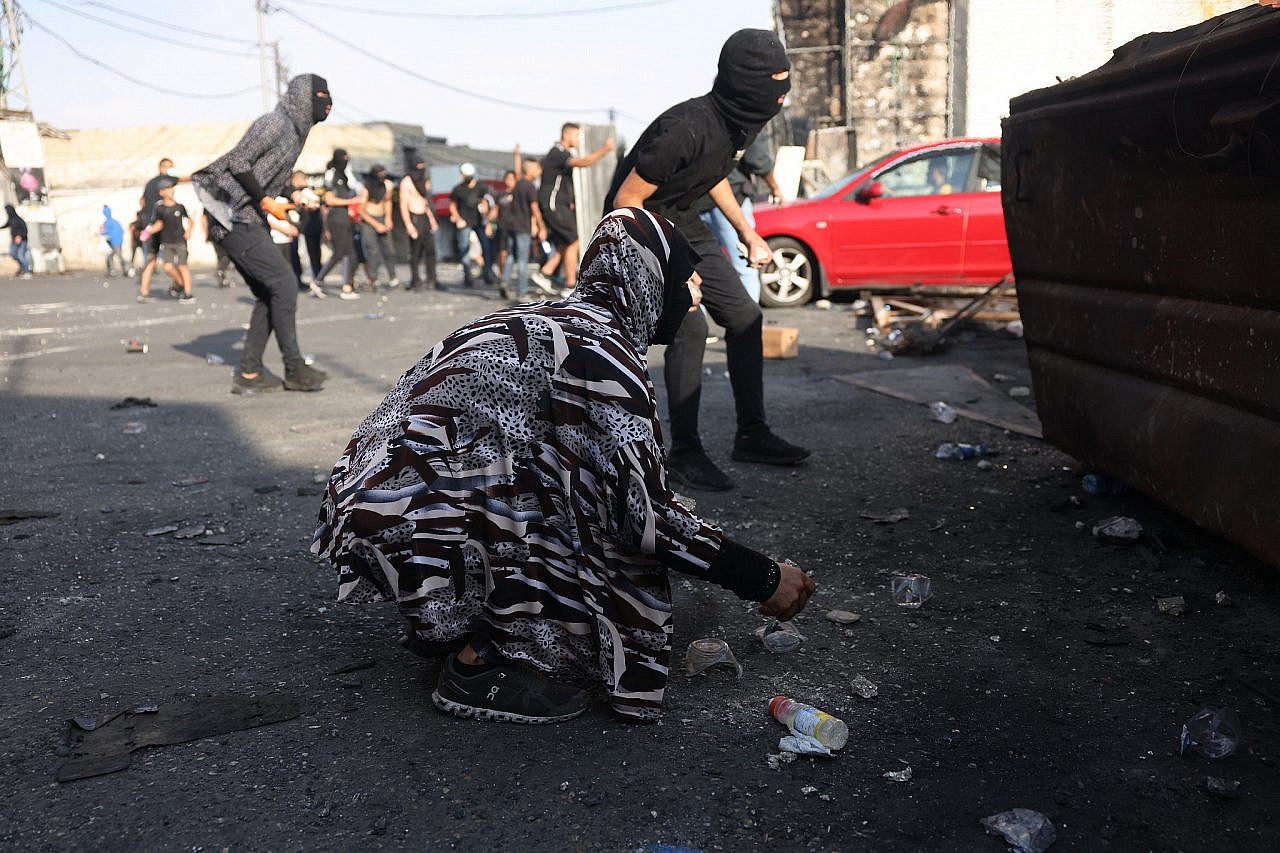
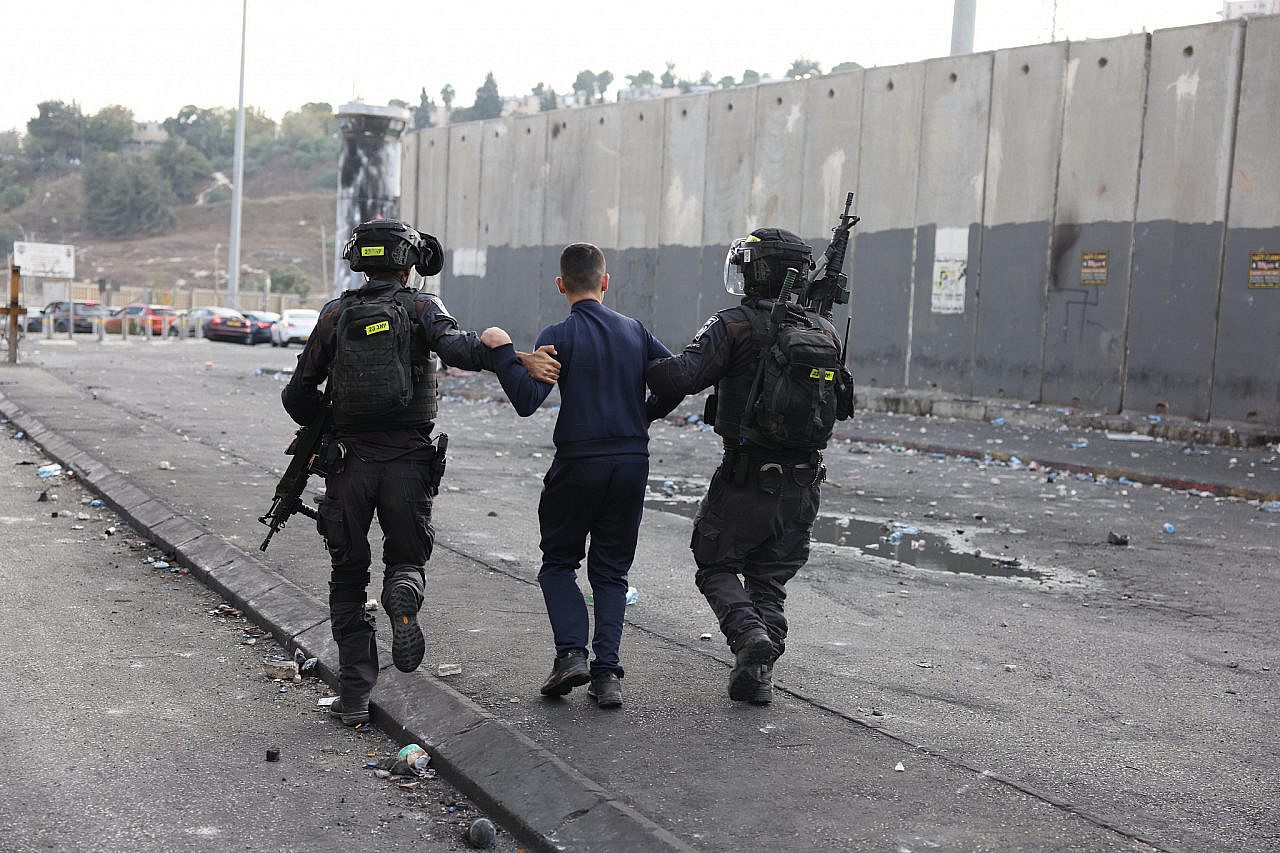
A version of this article also appeared in Hebrew on Local Call. Read it here.


